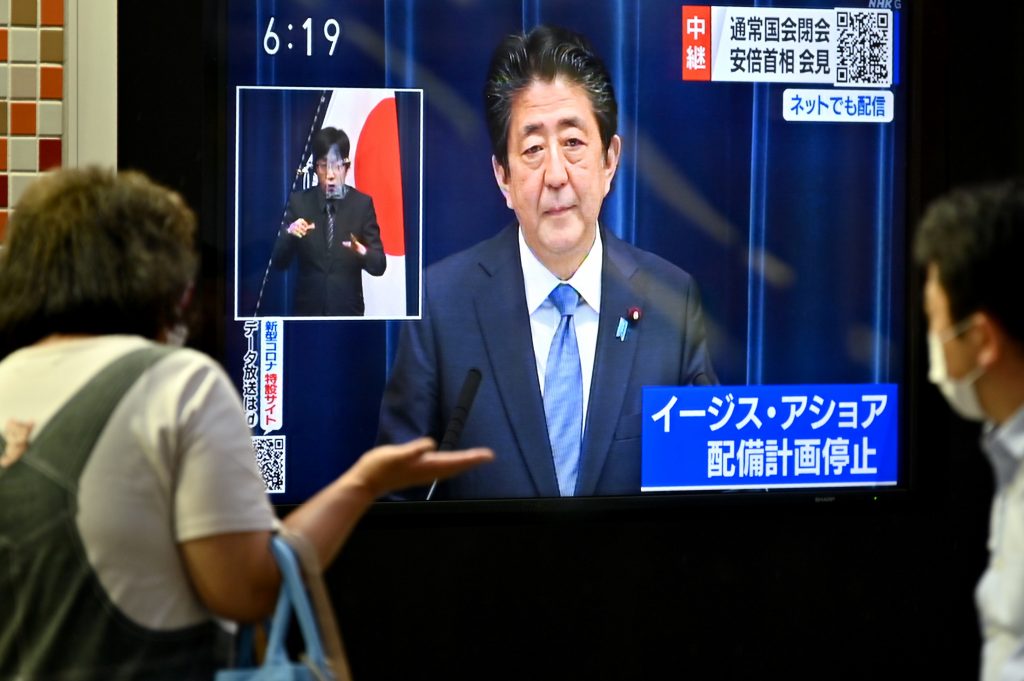
- ARAB NEWS
- 13 Jul 2025

TOKYO: Japanese Prime Minister Shinzo Abe’s fate is seen depending on whether the Tokyo Olympics and Paralympics will be successfully held in next year’s summer, following their one-year postponement due to the COVID-19 pandemic.
The Abe administration is keen to realize the Tokyo Games through efforts including the simplification of the sports event, although economic benefits from the postponed Olympics and Paralympics are likely to be smaller than initially expected.
The cancellation of the Tokyo Olympics and Paralympics could have devastating impact on the administration, as Abe, whose term as president of the ruling Liberal Democratic Party is slated to end in September 2021, hopes to make the Tokyo Games a legacy of his tenure.
“If the Olympics and Paralympics are canceled, the administration would become a lame duck,” a senior LDP member said.
“I want to create momentum for Japan to rise in the world again,” Abe stressed in an online show last month. He mentioned the 1964 Tokyo Olympics, which became a symbol of Japan’s rapid economic growth after the end of World War II.
However, there is a sense of crisis within the Abe administration now, with no end in sight to the coronavirus epidemic.
When the postponement of the 2020 Tokyo Games was decided in March, Abe clarified his determination to hold the postponed Games “in complete form.”
Desperate to avoid the Tokyo Games being called off, the Japanese leader has changed this stance, allowing the Olympics to be held in a simplified way.
Behind the prime minister’s change of stance was Yoshiro Mori, head of the 2020 Tokyo organizing committee. In mid-June, Mori, former prime minister, warned in a phone call with a government official that the Tokyo Games “could be canceled at this rate.”
Mori then suggested his intention to present “various options” to the International Olympic Committee as a backstop, according to informed sources.
After the number of foreign visitors to Japan has drastically fallen amid the coronavirus pandemic, it seems inevitable that the Olympics and Paralympics’ economic effects would drop from initial estimates.
Still, an LDP executive close to Abe claimed that the Tokyo Games “should definitely take place, even without spectators.” Meanwhile, a former minister for the 2020 Games said, “It’s a matter of determination.”
“It’s impossible to completely eradicate the coronavirus and hold the Tokyo Games,” a senior government official said. “We aim to manage the Olympics while coexisting with the coronavirus.”
Participants in the opening ceremony “may be limited to one representative from each country or region,” the official added.
At the same time, there is a mood to give up the holding of the Tokyo Olympics and Paralympics next year. “The Olympics will be unable to take place,” a veteran LDP politician predicted.
While the final decision on whether to hold the Tokyo Games in summer 2021 is expected for around next March, momentum toward the event’s cancellation may rapidly build up in the wake of a second wave of coronavirus infections or a delay in vaccine development, observers said.
Within the government and the ruling bloc, there is a view that, if the Olympics and Paralympics are certain to be canceled, Abe could consider dissolving the House of Representatives for a snap election before the cancellation is decided.
“I think a Lower House breakup is possible within this year,” a former cabinet minister said, suggesting that an election win could allow Abe to keep his grip on power, even if the Olympics and Paralympics are canceled.
Meanwhile, a government source said the Abe cabinet “may as well resign en masse if the Olympics can’t take place.” It would be “so miserable for the administration to continue” after missing the goal of holding the Tokyo Games, the source said.
JIJI Press